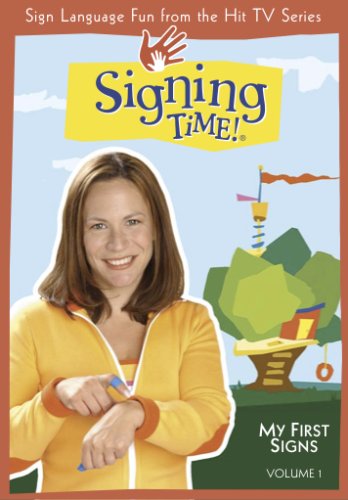
Do your kids love getting lost in a book?
Like Janae, I have been asked many times what I have done to have my kids reading so early. Sure, I know kids who have read earlier. Ours have all been pretty secure before starting kindergarten. Usually I've just answered that we haven't really done anything. Across the years I've seen various programs for teaching young children and even infants how to read, and I haven't tried any of them. Maybe they are great, but life seemed too busy and there is too much pressure on kids and their moms already.
But as the years pass and another child of mine shows up for kindergarten reading already, we get the questions again, "What did you do?" In September I got an email from my 6-year-old's teacher explaining why she sent a 5th grade spelling packet home, instead of what the rest of the class got. "What's your secret?" she wrote. I've gradually gotten used to the idea that maybe we are doing something. It just didn't seem like it because they are just normal, every day things.
 As I am watching our fifth child, who is 3 1/2, reading a few words here and there, I have again been thinking about what is contributing to this family trait--and how to answer the next time someone asks me what we did. I've come up with some things that may be a part of it. I'm sure you already do many of them; there's nothing news breaking here.
As I am watching our fifth child, who is 3 1/2, reading a few words here and there, I have again been thinking about what is contributing to this family trait--and how to answer the next time someone asks me what we did. I've come up with some things that may be a part of it. I'm sure you already do many of them; there's nothing news breaking here.
First and foremost, because they love it, we read to our children starting when they are just a few months old. At least they enjoy looking, mouthing (not quite chewing), handling, and listening. There's always a little book in the diaper bag. I used to be better at taking time during the day to read to my kids, but it's gotten harder to find that time with each child. But at least they get a book read to them twice a day, at nap time and bedtime, until they don't take naps and they read to themselves each night. Well, we keep reading to them at night still, but it kind of fades out as they get older. I even have a book my 18-year-old and I are half way through and trying to read together, if we could ever carve the time out again. (See this post about reading with older children at Halloween.)

Another way we've seen the reading abilities of our children grow has been a natural by-product of reading the scriptures regularly out loud as a family. We each take turns reading a few verses. When we get to the pre-reader of the family, if they are willing, we tell them what their verse says, giving them a word or two or a whole phrase at a time, depending what they can handle, and they repeat it. Gradually, we start showing them the words we think they can read and eventually they are reading whole verses. Since we read from the King James version of the Bible, this has positive repercussions for years. For example, when studying Shakespeare in high school, the language is much easier to understand because of being accustomed to hearing the English language from this period in history.
Children are eager to learn, and if you spend any time with them, you are in a position to teach. I think stop signs were what my children read first. They are conveniently placed all around town, you stop at them, they are bright red, the letters are clear, and there are only four letters. Take advantage of them. Point them out while driving or walking. Respond enthusiastically when they point one out. Sound out the word repeatedly, making sure each letter is heard. After you pass the sign, ask them what "STOP" begins with or to spell it. They are learning much more than just how to read that one word. Just the concept that these lines have meaning and you can learn to make sense of them is a big thing to wrap your head around. And the fact that you, who they look to for everything, think it's worth noticing means a lot, too.
Respond to their interest in learning. Point things out. Do they ask you to read the same book over and over? Start pointing out a simple, repeated word, and when you think they are ready, have them read that word each time you come to it. They've seen the pictures plenty of times--point to the words you are reading so they can follow along if they like. Even if they don't read any of it, they will realize that you are reading the words, not just telling about the pictures. Our kids always loved the Spot books by Eric Hill and were particularly interested in the words behind the flaps. I like the large, clear, simple text.
Books without words are good, too. Because they don't have words, they allow you and your child to develop powers of observation and other skills of understanding. One of my favorites is The Bear and the Fly. Here's an article I read recently that motivated me to find more books without words.
Have words and letters around. The more your child sees words, the more they will internalize them. Alphabet magnets on the fridge, learning toys, videos, their name on their bedroom wall, labels on toy bins, frequent exposure. My Mom taught kindergarten and 2nd grade for years, and it seems normal to me to have a chalkboard (and chalk) in the basement and posters from the local teacher's store on our walls.

Consider learning a little sign language. Reading is connected to language skills, and our younger kids that learned a little sign language as babies seemed to have a head start with words. My youngest was barely two when I realized she was reading the word "no" painted on a parking lot wall because she had seen it several times on a Signing Time video. These videos are not only geared for children and entertain with great songs while they teach, but they also show the text on screen while saying and signing basic words.
Have books around. I heard this bit of advice when my first child was small, and so I created a reading place in each part of the house--the basement, the family room, the front room (where the nicer books go), and their bedroom. Wherever they spend time, there is a book within reach (as well as a place to put books away).
Read yourself so your children see that you enjoy reading. You've heard this before I'm sure. Honestly, I don't know how much this has influenced my small children. Probably not directly, as it seems pointless for me to try to pick up my own book and read it when they are around. When I had my first young children, I was lucky to squeeze a book in a year for myself. Eventually I decided I couldn't wait for my kids to grow up for me to read more, and I manage to get books in by listening to them when I walk, in the car (when the kids aren't with me--if they are there we are listening to their music or their recorded book), and a couple pages before I drop off at night. Perhaps even the desire to read affects how a parent deals with books in their home and for their children. Maybe the most significant benefit to having a parent who reads is that good books influence us to be better people, better parents. (And they can give us a needed escape from the insanity, too.)

Use the library. Though I'm sure story time at the library is valuable, as a parent, I never hit it off with story time. It was just too hard to get there--it worked better for us to just read together at home. If you manage to do it, more power to you. All of these ideas are just things to choose from anyway--no one can do it all.
Still, we go to the library regularly. We do the reading club in the summer. We go online and reserve materials. We pay late fees, but it still seems like a bargain for all the library does for us. Lately I have been taking my youngest once a week to choose an Emergent Reader book, just the level A. I read it to her the first day at nap time, and the next day she reads part of each page. I tell her, "You read me a book, and then I'll read you one." She reads it to me each day until we go back to the library to pick out a new one (or four). I know this is borderline of teaching reading in an organized way, which I claimed I don't do, but really it's just been following her lead and providing materials she is eager to use. It's so much fun to see her learn!
Make books special. Give nice copies as gifts. Reward accomplishments with "book points" that can be used to buy books from the Scholastic Book order that comes home from school. I have a few magazine boxes that I decorated for different holidays that hold holiday books, and I pull those out for that holiday. My sister-in-law started a Mother and Son Neighborhood Book Club that has been a great success for years. I bet you're doing some great things that you're not even aware of.
Take advantage of the opportunities that arise, the ideas you have, and run with it.








